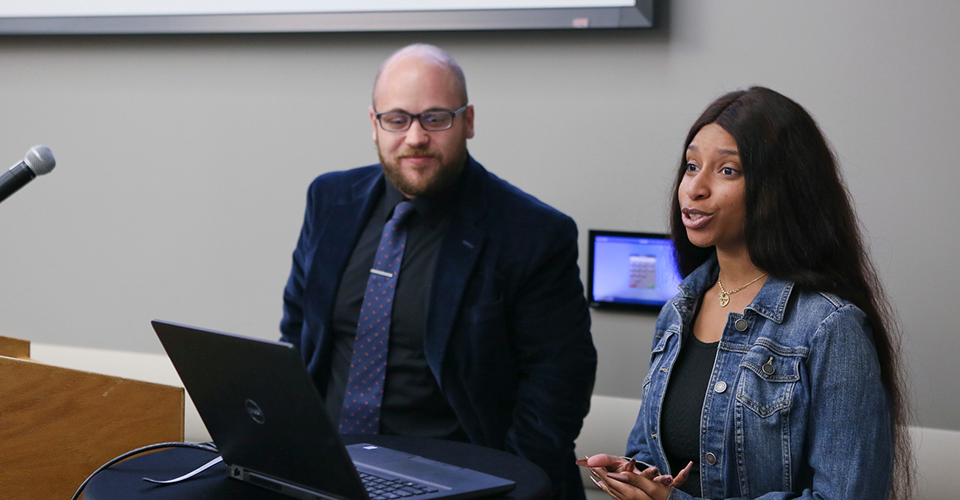This summer, a group of NEOMED, Youngstown State University and the University of Akron students had a unique opportunity to experience the innovation side of health care through the REDIzone® Future MedTech Entrepreneur Internship, an inaugural program supported by a grant from the Burton D. Morgan Foundation.
“The Foundation has invested in the collegiate entrepreneurship space in the region for decades now and we really look for programs that are taking a new approach to innovation. We value hands-on experience and interdisciplinary reach, so the fact that students came from all different kinds of backgrounds, combined with the fact that it was hands-on — in our eyes, that was pretty innovative,” says Mary McHenry, a program officer for the Burton D. Morgan Foundation.
The students spent six weeks learning about commercialization, medical innovations and how start-up companies can impact global health care.
Pitching products
The program’s grand finale, held Thursday, July 25, in Cook Alumni Hall, featured presentations of actual inventions being developed at NEOMED’s REDIzone, which brings together researchers and private investors to commercialize products.
Each pair of interns pitched a faculty-owned product or concept to a panel of judges, which included McHenry, Stephen Charles of Sator Therapeutics (who had coached the students), and Bruce Terry, a Northeast Ohio investor with a special interest in startups.
Questions from the panel included one pointed query from Terry, a former CEO now serving in the Northeast Ohio startup network as a mentor and investor, who asked, “If you were an investor, which assumptions would be scariest?” in a team’s pitch.
Several of the pitches were for products developed by Fayez Safadi, Ph.D., director of NEOMED’s Musculoskeletal Research Focus Area and professor of anatomy and neurobiology. The pitches offered therapeutic remedies for anything from Parkinson’s disease to takotsubo syndrome — the pain and physical stress you feel when after losing a loved one. Other products included a bottle that mimics the qualities of a human mother’s breast (a product developed by Rebecca German, Ph.D., a professor of anatomy and neurobiology) and a drug that people with diabetes might be happy to discovered, since it’s designed to heal foot ulcers (a problem for diabetics) more quickly than other products on the market.
McHenry noted, “I think this program opened students’ eyes to biomedical innovation and helped them gain a better understanding of pharmaceuticals, medical devices and biomedical technology.”
Eager to assist
The cohort was so enthusiastic that they asked Reed if they could return next year, unpaid, to mentor the next group of interns. (The answer was yes!)
Check back later in the year on how to apply for next year’s program.
NEOMED interns included:
- Keira Wilson, a rising M2
- Blake Bruce, a rising P3
- Dania El-Shaar, a College of Graduate Studies MPH student
- Scott Schmuki, a rising M2
- Nicholas Schmidt, a rising P2
- Stephanie Wolff, a rising M2
- Alex Oleksy, a rising P3
NEOMED inventors included:
- William Chilian, Ph.D., a professor and chair of the Department of Integrative Medical Sciences
- Vahagn Ohanyan, M.D., Ph.D., a research assistant professor of Integrative Medical Sciences
- Liya Yin, M.D., Ph.D., an associate professor of Integrative Medical Sciences
- Rebecca German, Ph.D., a professor of anatomy and neurobiology
- Fayez Safadi, Ph.D., director of NEOMED’s musculoskeletal research focus area and professor of anatomy and neurobiology
See more photos from the REDIzone Medical Innovation Pitch Day.
